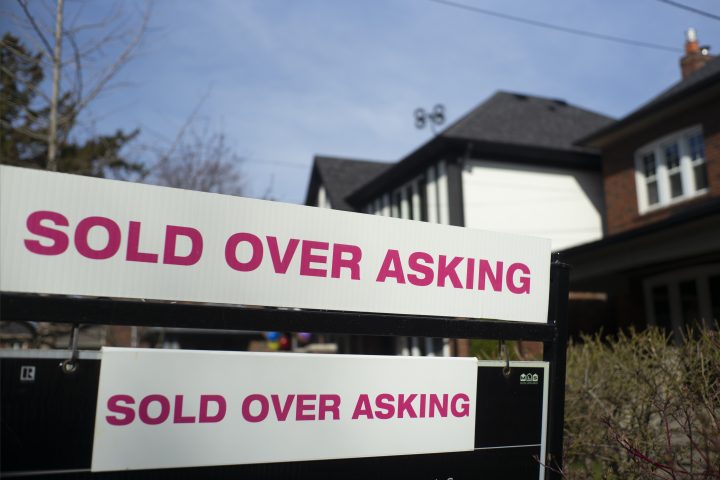Ontario’s Green Party is proposing a tax on domestic homebuyers with multiple properties as a measure to reduce housing demand and make it easier for first-time buyers to get into the market.

Party Leader Mike Schreiner announced the election platform promise on Wednesday, saying young people are being priced out of the market and accusing the current Progressive Conservative government of letting speculation “run out of control.”
“It’s time to level the playing field and pull back the red carpet that (Premier) Doug Ford rolled out for wealthy speculators so first-time home buyers can have a chance,” Schreiner stated.
If elected in June, the Greens — who currently have one seat in the Ontario legislature — would place a 20 per cent tax on the purchase of a third home. The amount would increase with each additional property.
It would only apply to new home purchases by domestic or corporate buyers who already own two or more homes. The Greens are also proposing a tax on vacant homes.
Skyrocketing home prices and lack of supply will likely be major issues in the upcoming provincial election campaign.
Statistics Canada data show that multiple-property ownership accounted for 31 per cent of Ontario’s housing stock in 2019 and 2020, and multiple-property owners made up 16 per cent of all owners in the province.

Get daily National news
Cody Skrzypkowski, a senior partner at North Group Real Estate in Toronto with North Group, said the Greens’ proposal would likely help even the playing field for first-time buyers while drawing mixed reaction from others.
“I think it will make a lot of people happy and I think it will also make a lot of people very frustrated,” he said. “I think there’s going to be a lot of pushback on it, because at the end of the day, a lot of people have created wealth through this avenue.”
Buyers of third homes probably aren’t a “massive portion of the market,” said Skrzypkowski, who mainly works with people buying first or second properties, but “it certainly does factor into to a certain demographic of buyer.”
Several Canadian governments, including the Ontario Tories and federal Liberals, have already taken aim at foreign buyers in bids to cool the housing market.

The Ontario government recently raised an existing tax on non-resident homebuyers to 20 per cent from 10 per cent, expanded it to cover the entire province and tightened loopholes that gave exceptions to some foreign nationals living in the province.
This month, the federal government’s budget included a two-year ban on residential real estate purchases with foreign capital.
Taxes on domestic buyers are less common in Canada, aside from measures recently introduced in Nova Scotia’s spring budget to tax property owners from outside the province.
Paul Anglin, a professor of real estate at the University of Guelph, said international buyers make a “a convenient boogeyman” when it comes to the housing supply issue, but taxing them is likely not effective given that they don’t own the majority of homes in the country.
“I think all the data shows that they are a very small percentage, so if you want to have an effect, you need to affect most of the market. That means domestic buyers,” Anglin said in an interview.
Even so, Anglin said governments’ and political parties’ focus on property investors is likely misplaced when it comes to changing the price of housing because. Such laws don’t necessarily tackle the lack of housing supply for people who are seeking a place to live in the province, he said.
“My suggestion is to act on the supply side. Increase the number of homes that are built,” he said. “If you really want to reduce the competition that’s bidding up the price, you need to get more homes for the same number of people.”







Comments